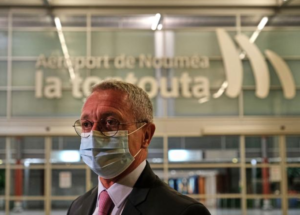Asia Pacific Report newsdesk
The French High Commissioner in New Caledonia, Patrice Faure, has confirmed the December 12 date for the independence referendum, fuelling tension over the ballot.
Kanaky New Caledonia’s pro-independence parties had called on Paris to postpone the vote to the second half of 2022 because of the impact of the covid-19 outbreak, which has claimed more than 270 lives, mostly Melanesian.
The pro-independence parties said they would not respect the result of the independence referendum if France retained December 12 as the date of the vote, reports RNZ Pacific.

The parties said that with a Kanak population in mourning, the conditions were not conducive to run a proper referendum campaign.
However, the latest announcement by the French High Commissioner has been welcomed by the anti-independence parties.
The anti-independence camp want the December date to be maintained, saying that New Caledonia needs “clarity”.
Two previous referendums, in 2018 and 2020, were won narrowly by anti-independence supporters, but the pro-independence parties increased their vote and were gaining momentum before the covid-19 pandemic.
Social media threats
In a media release, Daniel Goa, president of the pro-independence Caledonian Union (UC), has condemned a campaign of “degagism” — a political “clean out” approach designed to manipulate the youth, reports The Nouvelles Calédoniennes.
The UC announced its support for the mayor of Poindimié and President of the Northern Province, Paul Néaoutyine, who had been the target of verbal attacks and threats.
Police a now investigating a video broadcast by the Facebook page ERSK TV which allegedly carried the threats.
The UC criticised the “discourse of degagism … taking hold in the country and in popular movements”.
It said the bad atmosphere risked creating a rift between the the youth and elders, “who remain the guarantors of our political and social struggle.”
Goa called called on citizens not to be “caught up” by “manipulative and deceptive” speeches seeking to create “instability”.
This content originally appeared on Asia Pacific Report and was authored by APR editor.
This post was originally published on Radio Free.